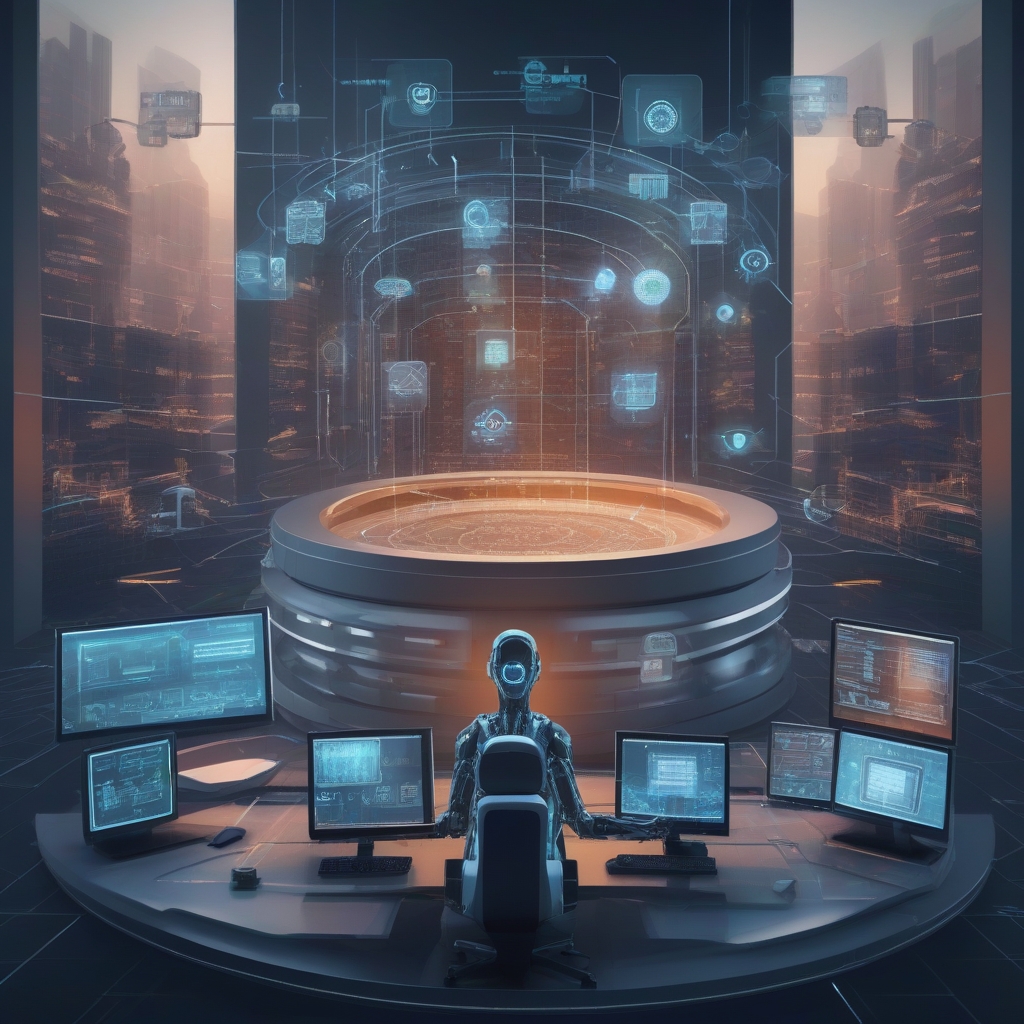The Dawn of AI in Cybersecurity
In today’s digital age, the ever-evolving landscape of cybersecurity demands adaptive measures to combat more sophisticated threats. As cybercriminals continuously enhance their strategies, organizations must innovate to defend their digital assets. This is where Artificial Intelligence (AI) plays a crucial role, empowering systems to anticipate and neutralize potential breaches before they occur.
The Increasing Challenge of Cyber Threats
In the past decade, cyber threats have grown exponentially in both volume and complexity. From **phishing schemes** and **ransomware attacks** to **zero-day vulnerabilities**, the arsenal of modern-day hackers has become more formidable. Traditional cybersecurity measures, which rely on predefined rules and signature-based detection, often fail to keep up with this rapid evolution.
Challenges faced by traditional cybersecurity measures:
- Limited ability to detect novel threats
- High false positive rates
- Resource-intensive manual monitoring
- Delayed response times to incidents
AI-Driven Automation: A Paradigm Shift
**Artificial Intelligence** is redefining cybersecurity by introducing a level of automation and intelligence previously unattainable. By leveraging machine learning and data analytics, AI systems are capable of processing massive datasets to identify patterns and anomalies that signify potential security threats.
How AI Enhances Cybersecurity
1. **Threat Detection and Analysis:** AI utilizes machine learning algorithms to detect irregularities in network traffic and user behavior. By continuously learning from new data, AI systems can swiftly identify unusual patterns that may indicate a cyber threat.
2. **Predictive Analytics:** Rather than reacting to cyber attacks post-occurrence, AI systems use predictive analytics to foresee potential threats. This proactive approach enables organizations to shore up defenses before an attack materializes.
3. **Automated Response Systems:** In the event of a breach, AI systems can autonomously respond, implementing countermeasures almost instantaneously. This minimizes the damage and disruption caused by the attack.
4. **Enhancing Existing Security Protocols:** AI can be integrated with existing cybersecurity infrastructure to enhance efficiency and accuracy. This includes refining intrusion detection systems, improving firewall configurations, and augmenting encryption methods.
Practical Applications of AI in Cybersecurity
Several real-world applications highlight the indispensable role of AI in enhancing cybersecurity. These implementations showcase how AI-driven solutions are redefining security protocols across various industries.
1. Endpoint Protection
AI-powered tools for endpoint protection offer real-time defense for devices against malware and unauthorized intrusion. These tools utilize behavioral analysis to detect and isolate threats before they compromise systems.
2. Intrusion Detection Systems (IDS) and Intrusion Prevention Systems (IPS)
AI enhances IDS and IPS functionalities by drastically improving the speed and accuracy of threat detection and mitigation. The ability of AI to automatically adjust threat detection parameters reduces false positives and enhances system resilience.
3. Email Filtering
AI-driven email filtering systems intelligently distinguish between legitimate communication and potentially harmful phishing emails. These systems continuously improve by analyzing new phishing tactics, safeguarding users from falling prey to email scams.
4. Network Security
Network security benefits profoundly from AI’s capability to monitor and analyze network traffic. AI systems can swiftly identify deviations from normal traffic patterns, providing insights that enable quick intervention against potential breaches.
Challenges and Considerations
While AI offers powerful tools for cybersecurity, it is not without its challenges. Organizations must consider several factors when integrating AI into their security frameworks:
1. Data Privacy and Ethics
AI systems require substantial volumes of data to function effectively, raising concerns about data privacy and ethical use. It’s imperative for businesses to implement robust data protection strategies and transparent policies to maintain trust.
2. Dependence on AI
An over-reliance on AI systems may lead organizations to underestimate the value of human oversight. While AI can automate many processes, human expertise remains crucial to contextualize insights and make informed strategic decisions.
3. Evolving Threat Environment
Cyber threats evolve rapidly, and AI systems need constant updates and recalibration to stay effective. Organizations must allocate resources for continuous refinement and retraining of AI models to ensure they keep pace with emerging threats.
The Future of AI in Cybersecurity
The intersection of AI and cybersecurity is a burgeoning field, promising even more advanced methodologies for protecting digital landscapes. Going forward, AI innovations will continue to transform cybersecurity strategies fundamentally.
Innovations on the Horizon
1. **AI and Blockchain Integration:** The synergy between AI and blockchain technology holds promising potential for securing transactions and data integrity. Blockchain’s immutable ledger can enhance AI-driven solutions by providing reliable data sources.
2. **Natural Language Processing (NLP):** Leveraging NLP will enhance threat intelligence by sifting through vast amounts of unstructured data from diverse sources, providing critical insights and contextual information about cyber threats.
3. **AI-Driven Security Operation Centers (SOCs):** Advanced AI will lead to the creation of automated SOCs capable of autonomously handling security incidents, reducing the need for human intervention and increasing response efficiency.
Conclusion
As the digital frontier expands, the role of AI in cybersecurity becomes increasingly indispensable. By automating threat detection, response, and prevention, AI empowers organizations to stay ahead of cyber threats and secure their digital domains effectively. Embracing AI-driven solutions is not merely an option but a necessity for robust cybersecurity in an interconnected world.

Leave a Reply